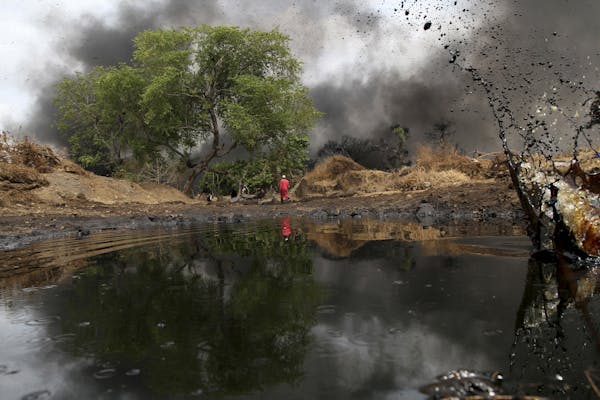
No time to spare
Earth Insight, RFUK, Fossil Fuel Non-Proliferation Treaty, CEED, AJESH, COICA, Amazon Sacred Headwaters Alliance, DGPAS, and UN SDSN come together during Climate Week NYC to talk about how we can avert fossil fuel expansion in Earth's most bioculturally diverse ecosystems.
New York Climate Week: No time to spare
This goals of this event are to:
- Provide a compelling picture and data on the imminent fossil fuel threats to the most bioculturally diverse ecosystems of the world;
- Provide a platform to elevate local and Indigenous peoples voices about the impact of such threats as well as to highlight local bioeconomy solutions;
- Propose innovative solutions to address such threats and mobilize financing to protect the most bioculturally diverse ecosystems, and accelerate a just energy transition; and,
- Convene key stakeholders for dialogue, collaboration and action.
to 19:00 EDT
Florencia Librizzi / florencia@earth-insight.org
This is a make or break moment with fossil fuel expansion threatening vital regions in the Amazon and Congo basins and the Coral Triangle —three of the most bioculturally diverse ecosystems on the planet. Learn about what is at stake in terms of oil and gas production and exploration blocks and overlap with priority forests, Indigenous territories, and biodiversity hotspots. Explore perspectives from Indigenous and regional leaders, and bold and disruptive solutions for charting different paths forward. Tropical rainforests cover just 6% of the Earth’s surface, but contain over 50% of its species. Similarly, the ‘Coral Triangle’ occupies just 1.5% of the world’s total ocean area, it contains 30% of the coral reef area on the planet, and it is also home to nearly all of the world’s marine turtle species. Despite their critical importance for the future of humanity, preserving primary and priority forests and critical marine ecosystems has not yet risen to be a global priority.
The International Energy Agency (IEA) has stated that in order to limit global warming to within the threshold of 1.5 C, no further fossil fuel expansion must take place. However, with current forecasts, in 2030, governments’ production plans and projects are accelerating and would lead to around 240% more coal, 57% more oil, and 71% more gas than would be consistent with limiting global warming to 1.5 C. The relentless growth of fossil fuel exploration in ecosystems that are critical carbon sinks and reservoirs of biodiversity not only imperils global climate stability, but also poses a grave threat to biodiversity and the livelihoods of millions of Indigenous peoples and local communities. The financial and business sector as well as governments have a key role to play in reducing threats to critical ecosystems and Indigenous and local communities.
Agenda
Pre-reception (cold plates)
Keynote Speaker:
- Fany Kuiru, General Coordinator, COICA
Moderator:
- Tyson Miller, Executive Director, Earth Insight
Panelists:
- Domingo Peas, Amazon Sacred Headwaters Alliance, Board President, Achuar Leader and Amazonian Coordinator for the Sacred Headwater Alliance
- Ana Osuna Orozco, Director of Programs, Rainforest Foundation UK
- Patrick Saidi Hemedi, Coordinator of the Dynamique des Groupes des Peuples Autochtones (DGPA)
- Harrison Nnoko, Executive Director, AJESH
- Gerry Arances, Executive Director, CEED Philippines TBC
- Luisa Valentim Barros, Member of the Council of Engineers for the Energy Transition (CEET), United Nations Sustainable Development Solutions Network (SDSN)
- Tzeporah Berman, Chair, Fossil Fuel Non Proliferation Treaty
Reception (warm plates)



.jpg?auto=compress%2Cformat&w=600)